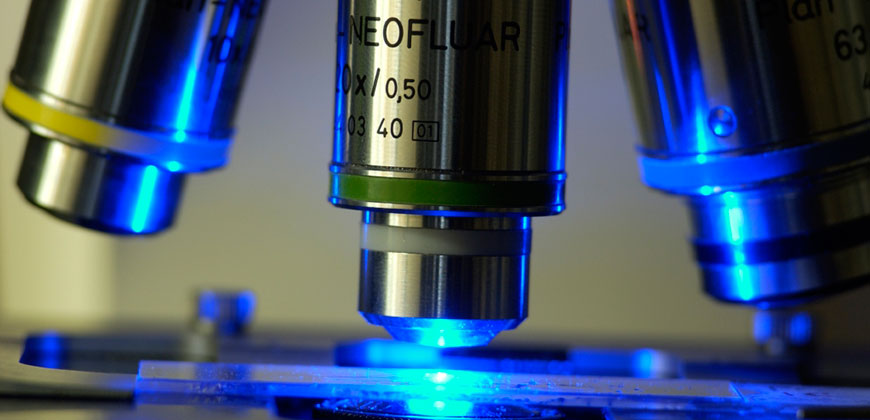
The Pre-Catalyst for Innovative Partnerships (PRECIP) program, sponsored by the Office of the Vice President for Research, was created to provide seed funding and support for new, early-stage research partnerships to explore transformative, interdisciplinary ideas. The 2016 PRECIP teams have been announced.
The goal of the PRECIP program is to encourage and support high-impact, interdisciplinary research collaborations that have strong potential to lead to major funding opportunities.
“The PRECIP program was created to benefit interdisciplinary research teams and assist in a strategic formation in anticipation of groups applying for the Catalyst for Innovative Partnerships program proposal in 2017,” said Alan Rudolph, vice president for research.
Over the nine-month program, PRECIP teams will work to achieve the project goals and objectives as outlined in their proposals, as well as participate in the broader PRECIP program activities.
For more information on the PRECIP, contact Meghan Suter at meghan.suter@colostate.edu.
2016 PRECIP Teams:
- American West Program Team
- Ruth Alexander, History
- Sarah Payne, History
- Adrian Howkins, History
- David Anderson, CO Natural Heritage Program
- Rick Knight, Human Dimensions for Natural Resources
- Factors Impacting How Firefighters Perceive and Communicate Risk: An Interdisciplinary, Mixed Methods Examination of Factors Impacting Firefighter Safety
- Timothy Amidon, English
- Elizabeth Williams, Communication Studies
- Kim Henry, Applied Social and Health Psychology
- Tiffany Lipsey, Health & Exercise Science
- Innovative Partnership in Applying Artificial Intelligence Techniques to Many Parameter Control, Prediction, and Data Analysis of Complex, Highly Nonlinear Systems
- Sandra Biedron, Electrical and Computer Engineering
- Charles Anderson, Computer Science
- Norm Buchanan, Physics
- Thomas Johnson, Environmental and Radiological Health Sciences
- Stephen Milton, Electrical and Computer Engineering
- Auralee Edelen, Electrical and Computer Engineering
- IT WORKS: Developing an interdisciplinary team to provide solutions for aging workforce
- Agnieszka Burzynska, Human Development and Family Studies/Molecular, Cellular and Integrative Neurosciences
- Samantha Conroy, Management
- Gloria Luong, Human Development and Family Studies
- Ziyu Long, Communication Studies
- Jessica Gonzalea, Counseling and Career Development
- Rural Wealth Creation: exploring food systems-led development strategies
- Michael Carolan, Sociology
- Becca B.R. Jablonski, Agricultural and Resource Economics
- Elizabeth Ryan , Environmental and Radiological Health Sciences
- Alessandro Bonanno, Agricultural and Resource Economics
- Andrew Jones, CIRA
- Meagan Schipanski, Soil and Crop Sciences
- Matthew Wallenstein, Ecosystem Science and Sustainability
- Paul Meiman, Forest and Rangeland Stewardship
- Perry Cabot, Civil and Environmental Engineering
- Michael Martin, Agricultural and Resource Economics
- Partnership for End-to-End Active Remote Sensing Solutions for Agriculture, Water, Weather and Climate
- Chandrasekar, Electrical and Computer Engineering
- Chris Kummerow, Atmospheric Science
- José Chávez, Civil and Environmental Engineering
- Margaret Cheney, Mathematics
- Neil Grigg, Civil and Environmental Engineering
- Thomas Holtzer, Bioagricultural Sciences & Pest Management
- Steve Miller, CIRA
- Jorge Ramirez, Civil and Environmental Engineering
- Indrakshi Ray, Computer Science
- Steven Reising, Electrical and Computer Engineering
- Steve Rutledge, Atmospheric Science
- Russ Schumacher, Atmospheric Science
- Sue van den Heever, Atmospheric Science
- Dare to Know and Commit to Change: Addressing Gender Equity in the Classroom
- Emily Fischer, Atmospheric Science
- Brittany Blood hart, Atmospheric Science and Psychology
- Meena Balgopal, Biology
- Laura Sample McMeeking, STEM Center
- Marilee Long, Journalism and Technical Communication
- Maternal Viral Infections: Is Pregnancy at Risk?
- Thomas Hansen, Biomedical Sciences
- Richard Bowen, Biomedical Sciences
- Quinton Winger, Biomedical Sciences
- Gerrit Bouma, Biomedical Sciences
- Hana Van Campen, Biomedical Sciences
- Christy Mayo, Microbiology, Immunology and Pathology
- Development of an Interdisciplinary Group for Research in Lifestyle and Health
- Adam Heuberger, Horticulture and Landscape Architecture
- Christopher Bell, Health and Exercise Science
- Sarah Johnson, Food Science & Human Nutrition
- Henry Thompson, Horticulture and Landscape Architecture
- Tiffany Weir, Food Science & Human Nutrition
- Improving agricultural carbon sequestration with high-throughput root phenotyping and soil carbon quantification
- John McKay, Bioagricultural Sciences & Pest Management
- Francesca Cotrufo, Soil & Crop Sciences
- Keith Paustian, Soil & Crop Sciences
- Matt Wallenstein, Ecosystem Science and Sustainability
- Transforming Urban Redevelopment with Water Sensitive Design Principles
- Sybil Sharvelle, Civil and Environmental Engineering
- Mazdak Arabi, Civil and Environmental Engineering
- Ken Carlson, Civil and Environmental Engineering
- Jennifer Cross, Sociology
- Neil Grigg, Civil and Environmental Engineering
- Stephanie Malin, Sociology
- Chris Olson, Stormwater Center
- Yaling Qian, Horticulture and Landscape Architecture
- Lorann Stallones, Colorado School of Public Health
- Mary Stromberger, Soil and Crop Sciences
- Ex Vivo Platforms to Launch Biomedical Discoveries
- Stuart Tobet, Biomedical Sciences
- Thomas Chen, Electrical and Computer Engineering
- Adam Chicco, Biomedical Sciences
- Colin Clay, Biomedical Sciences
- David Dandy, Chemical and Biomedical Engineering
- Gregg Dean, Microbiology, Immunology, and Pathology
- Dawn Duval, Clinical Sciences
- Daniel Gustafson, Clinical Sciences
- Charles Henry, Chemistry
- Shane Hentges, Biomedical Sciences
- Kevin Lear, Electrical and Computer Engineering
- Melissa Reynolds, Chemistry
- Elizabeth Ryan, Environmental and Radiological Health Sciences
- Jozsef Vigh, Biomedical Sciences
- Jesse Willson, Electrical and Computer Engineering
- Develop an Integrated System to Maximize the Return of Investing in Fire Resilient Watersheds in the Interior West
- Yu Wei, Forest & Rangeland Stewardship
- Anthony Cheng, Forest & Rangeland Stewardship
- Brett Wolk, Colorado Forest Restoration Institute
- Hong Miao, Finance and Real Estate
- Jeffery Cannon, Colorado Forest Restoration Institute
- Kelly Jones, Human Dimensions of Natural Resources
- Stephanie Kampf, Ecosystem Science and Sustainability
- Rob Addington, The Nature Conservancy Colorado Chapter